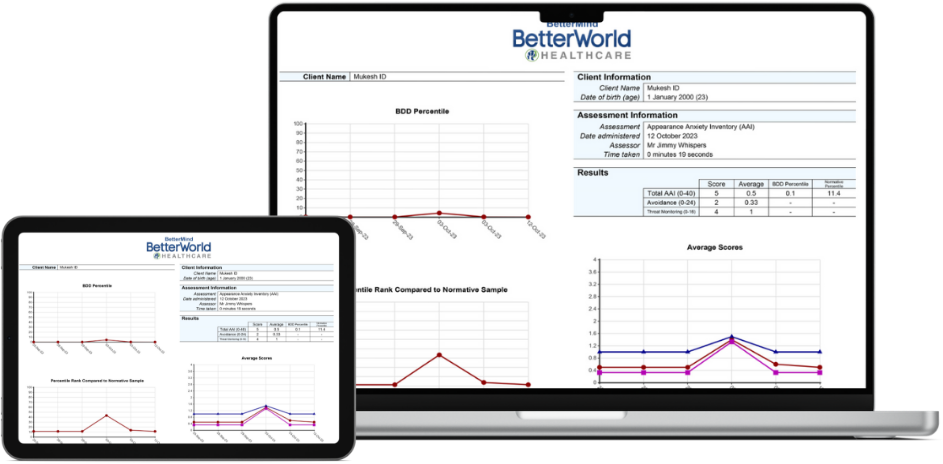Generalised Anxiety Disorder Assessment (GAD-7)
Assessments
Description
The GAD-7 is a brief measure of symptoms of anxiety, based on the generalised anxiety disorder diagnostic criteria described in DSM-IV. This assessment asks patients to evaluate their level of symptoms over the last two weeks, and can be used to track treatment progress over time. Given the simple language used in the assessment it is appropriate for individuals as young as 14 years. When used as a screening tool, further evaluation is recommended when the score is 10 or greater. Using the threshold score of 10, the GAD-7 has a sensitivity of 89% and a specificity of 82% for generalised anxiety disorder. It is moderately good at screening three other common anxiety disorders – panic disorder (sensitivity 74%, specificity 81%), social anxiety disorder (sensitivity 72%, specificity 80%), and post-traumatic stress disorder (sensitivity 66%, specificity 81%) (Kroenke, et al. 2007).
Validity
Lowe et al. (2008) investigated the validity and reliability of the GAD-7. Confirmatory factor analyses substantiated the 1-dimensional structure of the GAD-7. Internal consistency was identical across all subgroups (alpha = 0.89). Intercorrelations with the PHQ-2 and the Rosenberg Self-Esteem Scale were r = 0.64 (P < 0.001) and r = -0.43 (P < 0.001), respectively. As expected, women had significantly higher mean (SD) GAD-7 anxiety scores compared with men [3.2 (3.5) vs. 2.7 (3.2); P < 0.001]. Approximately 5% of subjects had GAD-7 scores of 10 or greater, and 1% had GAD-7 scores of 15 or greater. Norms were developed by Lowe et al. (2008) with a German sample of 5030 subjects (53.6% female) with a mean age (SD) of 48.4 (18.0) years.
Interpretation
A raw score (from 0 to 21) is presented as well as a percentile rank based on the Lowe et al. (2008) community sample. Given that females score slightly higher than males, a percentile for each gender is presented – the appropriate gender percentile should be selected for interpretation.
Try it and see how BetterMind can enhance your practice

Support
Frequently Asked Questions
You’ve got questions, we’ve got answers. Below you can find answers to some of the most frequently asked questions. If you can’t find the answer you’re looking for, please feel free to reach out to us at info@betterworldhealthcare.com.
I can’t open test results within the Web Browser
Assessment result PDFs are opened in a new tab within the web browser. If you click the results but they do not open, your browser will be blocking the popup. To resolve this, after you have pressed the test result, look out for an alert at the top of your browser notifying you that a pop-up has been blocked, then click "Allow".
I have forgotten my password. How can I reset it?
If you have forgotten your password please press “forgot password” within the app, or on the Web Browser App login page (https://app.bettermind-app.com/login). You will receive a new temporary password via email.
Can a Practitioner access BetterMind from their Smartphone?
No, A Client /Patient can answer assessment questions on a smartphone but the Practitioners/ Users can't administer BetterMind using a Smartphone. A computer, laptop or tablet will have to be used.


